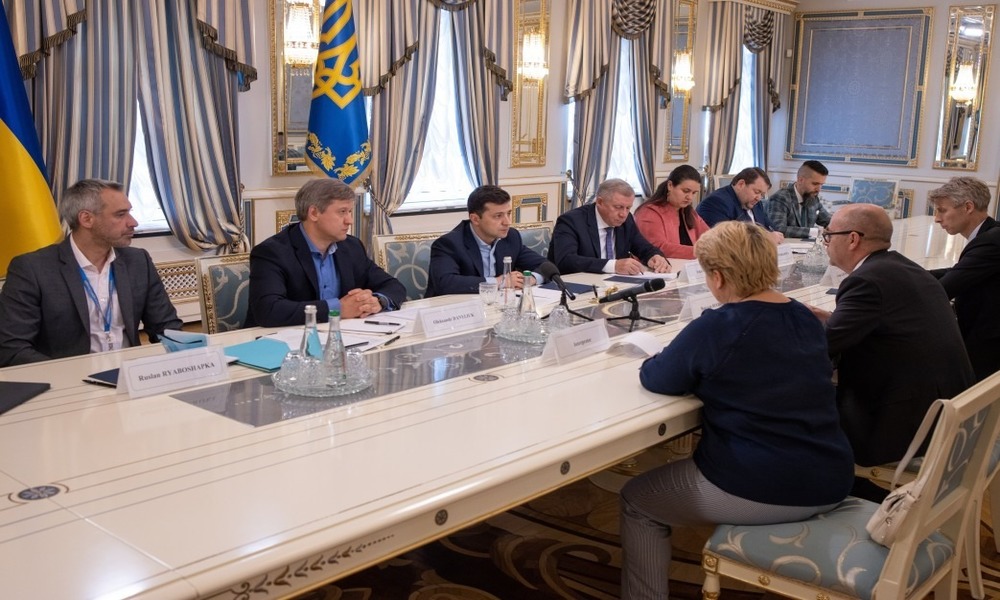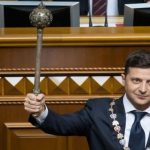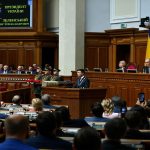Ukraine Monitor
Date: 31 May 2019
Kolomoyskyi and the IMF – a problem of Zelensky
It was known before his becoming a president, that Volodymyr Zelensky’s close relationship with Ihor Kolomoyskyi would be his biggest burden and problem. The oligarch is not helping the president – to say the least – who has been accused during his presidential campaign of being a puppet of Kolomoyskyi. After his return to Ukraine, the oligarch is constantly giving interviews in which he depicts himself as a godfather of the new presidency and produces various ideas which put Zelensky in a difficult position, just as in the case of cooperation with the International Monetary Fund.

Ihor Kolomoyskyi returned to Ukraine several days before the presidential inauguration of Zelensky. In the interviews, he is trying to convince that Zelensky is not his puppet, but at the same time he is saying that he invented “President Zelensky”. Additionally, Andriy Bohdan, previously known as Kolomoyskyi’s lawyer, became the president’s chief of staff. In the interview for “The Financial Times”, Kolomoyskyi encourages Zelensky to announce the bankruptcy of Ukraine and to end the cooperation with the IMF, like Greece. The oligarch estimated that if the president listens to the West, he will end just like his predecessor Petro Poroshenko: “He will have the results of 5, 10 or 15 percent instead of 73 percent”. A problem is that these words may be triggered by hidden personal motives of the oligarch. Kolomoyskyi is struggling to regain the money from the PrivatBank which used to be under his control and which was nationalised during the Poroshenko’s governance due to bankruptcy. The oligarch claims that the state owes him 2 billion dollars. The billionaire is not hiding that he is expecting he will regain his assets. However, this would mean a financial crisis and problems with the cooperation with the IMF. In March 2015, the Ukrainian government obliged itself to combat corruption in exchange for an aid package from the IMF of 17.5 billion dollars. In December 2018, the IMF accepted a new, 14-month aid programme for Ukraine of 3.9 billion dollars and passed the first block of 1.4 billion dollars to the Kiev’s authorities. The remaining funds are to be rationed every half year on the basis of the assessment of the IMF’s requirements realisation by Ukrainian authorities.
Support Us
If content prepared by Warsaw Institute team is useful for you, please support our actions. Donations from private persons are necessary for the continuation of our mission.
The IMF mission has made such an assessment in Kiev at the end of May. Guests were hosted by the new president on May 28. Volodymyr Zelensky announced that the cooperation between Kiev and the IMF would be continued and there were no doubts in this matter. This statement may be considered as a reaction to the words of Kolomoyskyi. Zelensky blamed the parliament for delays in accepting bills advised by the IMF. The IMF’s delegation stressed the importance of anti-corruption actions and the independence of institutions struggling with corruption in Ukraine: National Anti-Corruption Bureau of Ukraine (NABU), Specialized Anti-Corruption Prosecutor’s Office and High Anti-Corruption Court. For now, the IMF is waiting, but such statements as the one made by Kolomoyskyi increase uncertainty. – Ukraine will receive the subsequent block of aid measures from the IMF after the parliamentary elections and the establishment of a new government – stated Oleksandr Danylyuk, who was present at the meeting between Zelensky and the IMF representatives. The former Minister of Finance, and the current Secretary of the National Security and Defence Council of Ukraine announced that after the snap parliamentary elections scheduled for July 21, Ukrainian authorities would start discussing a new aid programme with the IMF. Danylyuk assured that the staff of the new president did not consider declaring bankruptcy of the state as an option. Kolomoyskyi is not satisfied, but the dispute over the cooperation with the IMF should not be considered as the beginning of the conflict between Zelensky and Kolomoyskyi.
_________________________________
All texts published by the Warsaw Institute Foundation may be disseminated on the condition that their origin is credited. Images may not be used without permission.














